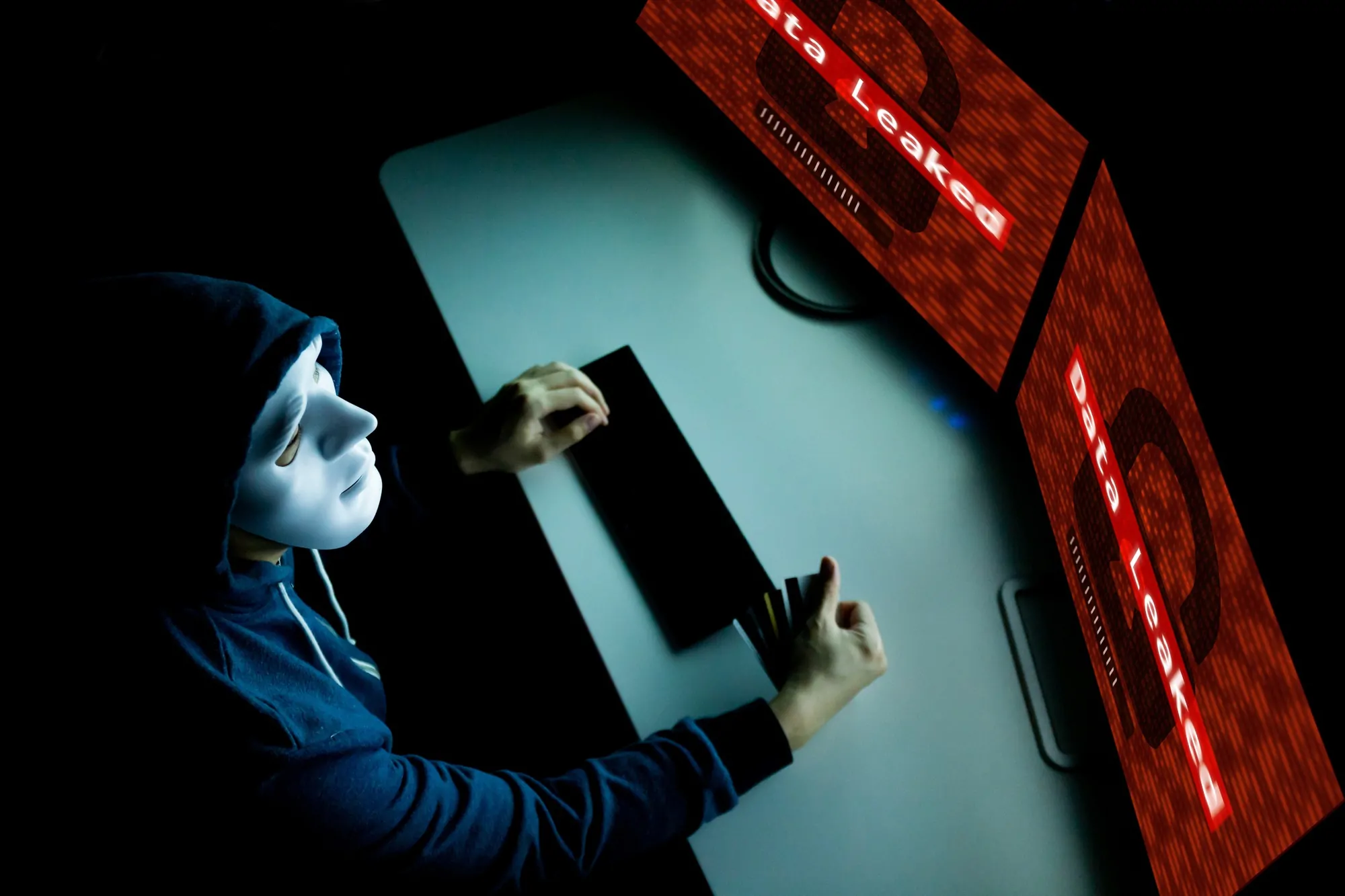
100,000 Hotel Guest IDs on the Dark Web – A Wake-Up Call for Hospitality Security
Table of Contents
ToggleImagine a traveler checking into a picturesque Italian hotel, handing over their passport at the front desk. Months later, that passport scan – along with nearly 100,000 other guest ID images – surfaces for sale on the dark web. This alarming scenario became reality when Italian authorities discovered that a hacker stole tens of thousands of high-resolution passport and ID card scans from hotel check-in systems. The hacker, known as “mydocs,” posted 90,600 ID images in batches on a dark web forum, claiming they were plundered via unauthorized access to hotel computer systems between June and August 2025. Ten hotels in Italy (and even a resort in Spain, according to one security firm) appear to have been hit, though officials haven’t publicly named the establishments.
 The fallout from this breach is a stark reminder of the stakes involved when hotels fail to secure guest data. “This data, once stolen, can be used for fraudulent purposes: from creating false documents to opening bank accounts, to social engineering attacks and digital identity theft, with potentially serious consequences for the victims, both financially and legally,” warned Italy’s digital agency AgID. In other words, a single copied passport could fuel crimes ranging from identity theft to financial fraud – nightmares for both guests and hotels. In response, the Italian Data Protection Authority launched an investigation and urged all hotels to bolster their defenses. Notably, they advised tourist accommodations to route guest registrations through the police-operated Alloggiati web portal – an official secure system – instead of locally storing IDs. This step underscores a crucial lesson: sensitive guest identity data should be handled with the highest security, ideally in dedicated secure systems rather than sitting unguarded on front-desk computers.
The fallout from this breach is a stark reminder of the stakes involved when hotels fail to secure guest data. “This data, once stolen, can be used for fraudulent purposes: from creating false documents to opening bank accounts, to social engineering attacks and digital identity theft, with potentially serious consequences for the victims, both financially and legally,” warned Italy’s digital agency AgID. In other words, a single copied passport could fuel crimes ranging from identity theft to financial fraud – nightmares for both guests and hotels. In response, the Italian Data Protection Authority launched an investigation and urged all hotels to bolster their defenses. Notably, they advised tourist accommodations to route guest registrations through the police-operated Alloggiati web portal – an official secure system – instead of locally storing IDs. This step underscores a crucial lesson: sensitive guest identity data should be handled with the highest security, ideally in dedicated secure systems rather than sitting unguarded on front-desk computers.
A Wake-Up Call for Hotel Owners and Managers
For hotel owners and managers worldwide, the incident in Italy serves as a dramatic wake-up call. If a breach of this magnitude can happen in one country, it can happen anywhere. Every hotel, whether a boutique inn or a large chain, collects valuable personal information from guests – and cybercriminals know it. In Italy’s case, outdated practices or security gaps allowed a hacker to abscond with a trove of guest IDs. Beyond the immediate breach, the lasting damage includes erosion of guest trust, potential legal penalties, and costly remediation. It’s far cheaper (and smarter) to prevent such disasters than to recover from them.
What’s especially tragic is that breaches like these are often preventable. Simply put, storing passport scans and IDs on a front-desk PC or an unsecured local server is a recipe for disaster. Had those hotels used a secure, cloud-based system for ID storage or the government’s own portal, the hacker’s job would have been much harder. The Alloggiati portal recommendation highlights that centralized, secure handling of guest IDs is now seen as essential. Hotels must ensure that guest data isn’t silently stockpiled on machines that lack enterprise-grade protection. Modern cloud solutions can encrypt and store IDs off-site, vastly reducing the risk of local malware or intruders pilfering the data.
Hotels Under Attack: Scams and Schemes Are on the Rise
Data breaches aren’t the only threat facing the hospitality industry. In fact, recent events read like a crime novel, with hotels as the targets of various cunning scams. Scammers frequently target hotels, exploiting any weaknesses in staff vigilance or technology. From high-tech phishing emails to old-fashioned fraud, the tactics are diverse but share one theme: taking advantage of busy hospitality workers and systems.
 Consider the case of an upscale hotel that lost over $15,000 in a single night to a sophisticated con. In this scam, a con artist called the hotel during a graveyard shift, impersonating an IT support officer from corporate headquarters. The scammer was so convincing – referencing real internal events and using the correct jargon – that the night auditor and even a manager were fooled into processing a series of fake refund transactions. By the time the hotel realized these “system tests” were bogus, the criminal had already siphoned money through those transactions, totaling over $15,000 lost to the phantom “refund” requests. Read more about how scams like this work here.
Consider the case of an upscale hotel that lost over $15,000 in a single night to a sophisticated con. In this scam, a con artist called the hotel during a graveyard shift, impersonating an IT support officer from corporate headquarters. The scammer was so convincing – referencing real internal events and using the correct jargon – that the night auditor and even a manager were fooled into processing a series of fake refund transactions. By the time the hotel realized these “system tests” were bogus, the criminal had already siphoned money through those transactions, totaling over $15,000 lost to the phantom “refund” requests. Read more about how scams like this work here.
In another scheme, cybercriminals have been targeting hotels with phishing emails disguised as Booking.com communications. In a recent campaign, Russian hackers sent impeccably forged emails that appeared to come from Booking.com, complete with real-looking reservation details and “reply” buttons. These messages often contain a sense of urgency – for example, a guest asking for an early check-in or a problem with a reservation – and include a link that, when clicked, leads to a malicious site. Unsuspecting front desk staff, believing they’re handling a legitimate guest inquiry, click the link and unknowingly grant attackers access or install malware. This sophisticated phishing scam shows how far fraudsters will go to trick hotel employees, masquerading as trusted platforms to compromise hotel operations and steal sensitive info.
These are not isolated incidents. As hospitality businesses digitize operations, criminals are seizing new opportunities. Fake guests present stolen or locked credit cards at check-in; later the charges get disputed, leaving hotels eating the cost. Organized fraud rings book rooms with phony details or use prepaid cards, then vanish – leaving hoteliers with chargebacks and headaches. In fact, hotels report losing tens of thousands of dollars annually due to fraudulent chargebacks and related scams. Learn more about chargebacks and fraud here.
The threats are evolving constantly. A new wave of scams targeting hotel employees highlights just how resourceful attackers can be. Every gap in security or staff training – whether it’s a guest service agent rushing through an ID check or a receptionist clicking an unfamiliar email link – is an entry point for scammers.
Secure ID Handling: How Cloud Solutions Can Prevent the Next Disaster

In light of these threats, a new mantra is echoing in the halls of hotel management: prioritize security, especially when it comes to guest identities. Many hotels are already making the switch to Guest Ban as they modernize how they handle ID scans and personal data. Cloud-based ID storage and verification systems like Guest Ban have become game-changers for hotel security. Instead of saving sensitive ID images on a local front desk computer (where malware or an intruder can easily find them), Guest Ban’s system uploads and stores these documents securely in the cloud. The front-desk PC never retains the images, meaning even if that machine is compromised, there are no passport or driver’s license scans sitting on it for thieves to steal. This approach eliminates a huge vulnerability and prevents the costly mistakes that can occur when busy staff inadvertently leave personal data exposed on-site. By switching to Guest Ban, hotels are not just securing guest information – they are protecting their reputation, reducing liability, and gaining a competitive edge in an increasingly security-conscious market.
By leveraging a cloud ID scanning system, hotels also benefit from encryption, access controls, and regular security updates that a dedicated provider like Guest Ban maintains. It’s like moving your guest data from a file cabinet in the lobby to a locked vault guarded by security experts. Furthermore, these systems can integrate with your Property Management System (PMS) to seamlessly verify IDs and even check guest names against watch-lists or banned guest lists in real-time. Not only does this protect against identity theft, it also creates an audit trail that can defend your hotel in case of disputes. For instance, having a verified ID on file can help fight fraudulent chargeback claims – some hotels have seen a significant drop in chargeback losses after equipping their front desk with robust ID verification tools.
Hotel owners and managers should take a holistic approach: combine technology with training. Ensure your team is aware of the latest scams – from fake Booking.com emails to callers pushing “urgent” refunds – and empower them to double-check anything suspicious. At the same time, lock down the easy targets like those scanned IDs. The cost of investing in secure solutions and staff education is minuscule compared to the financial and reputational damage of a major breach or scam. As we’ve seen, a single lapse can lead to thousands of stolen identities or tens of thousands in losses overnight. No hotel wants to become the next headline for the wrong reasons.
Earning Trust Through Security
The hospitality business is built on trust and service. Guests trust hotels with their safety and personal information; in return, hotels must treat that responsibility with the utmost seriousness. The unsettling saga of nearly 100,000 guest IDs on the dark web is a cautionary tale for the industry. But it’s also an opportunity to learn and improve. By embracing secure, cloud-based ID storage, rigorous data protection practices, and continuous staff vigilance, hotel owners and managers can outsmart the scammers and hackers. In an age of digital crime, being proactive is the best defense. Don’t wait for a breach or scam to force your hand – strengthen your hotel’s defenses now, so you never have to tell your guests that their passport copy fell into the wrong hands.
Every hotelier can take action today: audit your data security, upgrade to trusted cloud systems for sensitive information, and train your staff to recognize scams before they strike. These steps not only protect your guests and your revenue, but also uphold the reputation that you’ve worked so hard to build. In the end, the message is clear – those that prioritize security will turn this dark web scare into a success story of safety, assuring guests that their home away from home is protected by more than just warm hospitality. It’s protected by smart, ironclad security.
